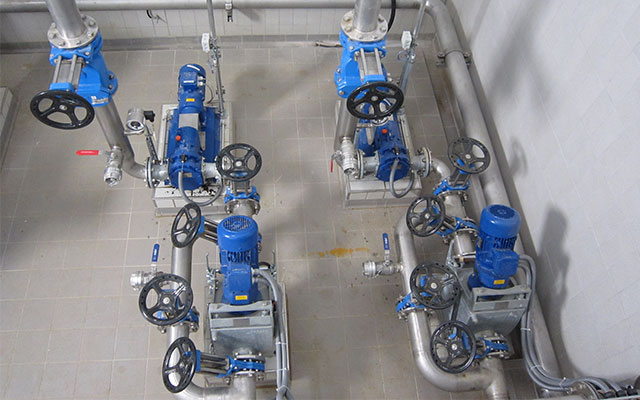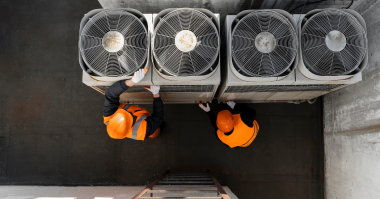The complexities of wastewater processing applications demand the simplicity of a single provider for pumps, accessories, service, and support.
Author: John Dean, Project Manager, NETZSCH Pumps North America
Applications for material handling and pumping technology in the wastewater industry tend to be complex, with a number of different people and organizations involved in installation and operation. The need to coordinate among officials from one or several municipalities, contractors, and engineers means that designing, installing, and operating material handling technology within these contexts is challenging. Considering this challenge along with the industry trend of buying full material handling solutions at once rather than simply integrating a stand-alone pump into an existing plant, it is clear that having a single source for pumps, accessories, design, service, and support greatly simplifies material handling in wastewater applications.
Wastewater pumping applications
There are three main applications for material handling and pumping technology within wastewater processing: polymer, sludge, and sludge cake. Polymer pumping applications tend to be fairly simple, with pumps handling polymers alone or solutions containing the polymers. Sludge pumping applications vary in their demands, from thin sludge to digested or thickened sludge. Sludge cake is the most demanding wastewater pumping application, given that it is high in solids and consequently difficult to convey.
Design, installation, and service for wastewater pumping applications are unique, with a few major differences that set these applications apart from general industrial pumping and other material handling applications. The fundamental fact that wastewater processing plants are municipal entities adds layers of complexity into the design and installation process: projects are overseen by representatives from a number of different organizations, including the municipalities, other government agencies, contractors, engineering companies, and technology suppliers. This sizable number of people involved in the planning and installation of each project makes for a great deal of essential coordination.
In addition, wastewater processing plants tend to purchase material handling technology as a full solution, rather than a stand-alone pump or several pumps to be fitted into an existing process. Wastewater pumping applications are generally handled during an expansion or construction of a fully new plant, meaning that many different pieces of technology are being installed at once.
The complexity of organizing and coordinating with all of the parties involved in a wastewater processing plant, combined with operators’ general desire to install full systems simultaneously, creates a need for simplification in the design and installation process, as well as in servicing the equipment. The most effective way to simplify design, installation, and service is to choose a single source provider for the full material handling system. With a single provider who can offer design, installation, and service, wastewater pumping applications experience reduced complexity leading to greater efficacy and uptime.
Benefits of coordinating pumps, accessories, and services
Acquiring the full material handling system from a single vendor such as the industry-leading NETZSCH Pumps & Systems, including pumps, accessories, and services such as design, start-up assistance, and support, helps wastewater customers to reduce complications. The need to coordinate with a number of different vendors is eliminated, which is especially critical for servicing. When wastewater processing plants purchase material handling systems from NETZSCH, everything is sourced through a single manufacturer, and so there is just one person, a local representative, who is knowledgeable about the whole system and can coordinate with the company. Customers need not piece together an answer from multiple vendors, or worry about vendors passing on responsibility when problems must be solved.
Even earlier than that, when a new project is being planned, fewer people need to be involved in designing and choosing pump and accessories they want. A single expert or an experienced team is more able to understand the specific demands of a given applications and effectively design a system to meet those demands than a collection of experts from a number of different vendors. There is a reduction in cross-company communication resulting in a lower potential for error.
Once a project is up and running, startup and training is more easily managed by a single vendor. This startup service and training support can be performed by a local representative, who then becomes the wastewater processing plant’s one point of contact for the service and support described above. That person can effectively provide troubleshooting and spare parts, without downtime associated with coordinating among a number of different vendors’ representatives.
Sludge cake processing
All wastewater material handling applications can reap the benefits of choosing a single vendor for sourcing pumps, accessories and service, though none so much as sludge cake handling. Sludge cake is the most complex application within wastewater processing due to its increased solids content, thereby making the simplification offered by single-source technology all the more significant.
With sludge cake handling, a number of accessories are important to managing operations and ensuring uptime: systems to turn the pump on and off when the hopper is full of sludge cake, control panels, load cells, pressure reduction systems, safety systems, and more. If all of these products and systems are designed, manufactured, installed, and supported by a single vendor, the ease of integration and maintenance is dramatically increased.
In all wastewater processing applications, the inherent complexity of material handling systems, as well as the impact of that complexity on ease of design and maintenance, is reduced by sourcing material handling technology from a single vendor. In doing so, wastewater processing plants can positively impact performance and uptime and simplify plant management.
Read how NETZSCH Pumps Ensure Reliable Conveyance of Sewage Sludge.





Comments